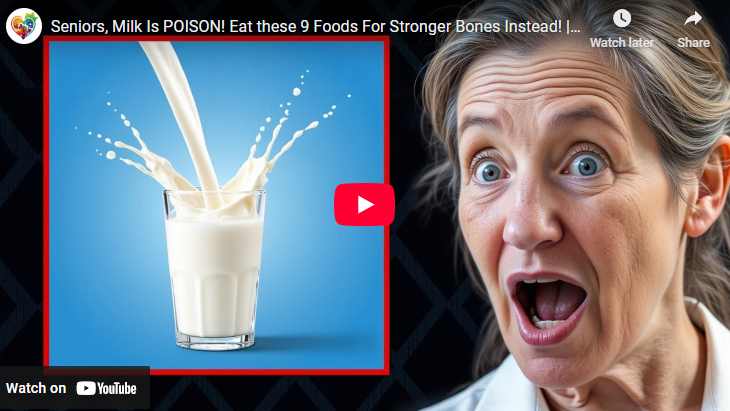
Why Calcium is Essential for Older Adults
As we age, maintaining strong bones becomes critical to our overall health and mobility. With osteoporosis affecting one in two women and one in four men over the age of 50, ensuring adequate calcium intake should be a priority. Contrary to popular belief, milk might not be the best source of calcium. Many adults consume milk daily yet lack sufficient calcium levels. Instead, alternative foods can provide more calcium and other essential nutrients to support skeletal strength.
In the video 'Seniors, Milk Is POISON! Eat these 9 Foods For Stronger Bones Instead!', the discussion dives into essential dietary changes for seniors, exploring key insights that sparked deeper analysis on our end.
Seven Unexpected Foods for Stronger Bones
According to recent insights, there are several everyday foods that outshine milk in calcium content. From collard greens to fortified orange juice, these nutrient-rich options can fit seamlessly into your daily meals:
Collard Greens: One cup of cooked collard greens packs 350 mg of calcium, more than an 8 oz glass of milk. Low in oxalates, their calcium is better absorbed.
Sardines with Bones: A can of sardines offers 350-400 mg of calcium, plus vitamin D, crucial for optimal calcium uptake.
Fortified Tofu: Depending on the brand, fortified tofu can contain 250-350 mg of calcium, making it a great plant-based option.
Almonds: A serving of 23 almonds yields around 75 mg of calcium, with added benefits from magnesium and healthy fats.
Chia Seeds: Just two tablespoons deliver 180 mg of calcium and additional nutrients for bone health.
Sesame Seeds and Tahini: Two tablespoons of tahini provide about 130 mg of calcium, with sesame seeds boasting even more per ounce.
Fortified Orange Juice: This convenient breakfast staple can contain about 350 mg of calcium and added vitamin D.
Conclusion: Rethink Your Bone Health
With various alternatives to milk, it’s time to rethink your dietary choices for maintaining strong bones. Incorporating these nutrient-dense foods can ensure you're getting not only enough calcium but also a well-rounded array of vitamins and minerals. As we focus on bone health after 50, embracing diverse sources of calcium could make all the difference in our long-term health.
 Add Row
Add Row  Add
Add 




Write A Comment